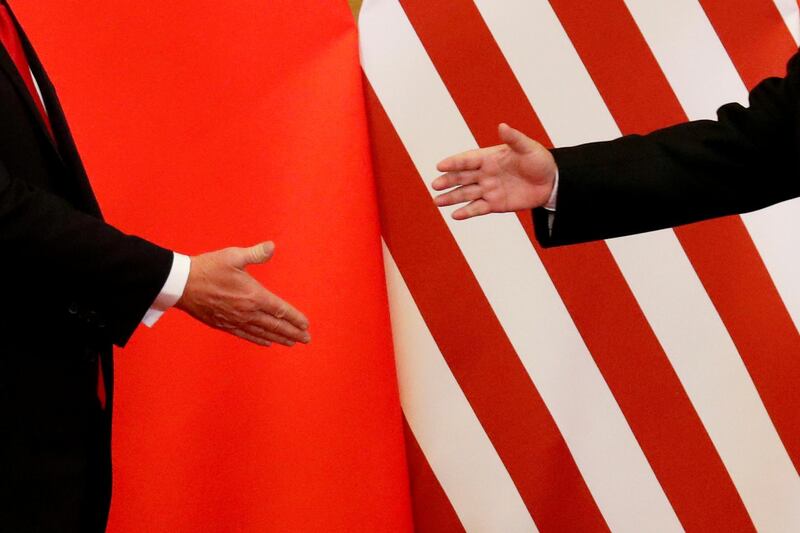Record levels of merger and acquisition activity are expected to tail off next year as trade disputes and increasing geopolitical tensions dissuade investors.
Global appetite for corporate takeovers is at a four-year low with only 46 per cent of dealmaker executives planning to make M&A purchases in the next year compared to 56 per cent last year, according to a survey by professional services company EY.
More than 2,600 executives across 45 countries were surveyed for its latest Global Capital Confidence Barometer, published on Monday.
“Geopolitical, trade and tariff uncertainties have finally caused some deal-makers to hit the pause button,” said Steve Krouskos, EY’s global vice chairman for transaction advisory services. “Despite stronger than anticipated first-half earnings and the undeniable strategic imperative for deals, we can expect this year to finish with much weaker M&A than how it started.”
In the Middle East, M&A activity in the first six months of 2018 was strong, rising 62 per cent year-on-year, according to an analysis in July by law firm Baker McKenzie Habib Al Mulla.
Despite 2018 being on track to become a near-record year for the number of global M&As – with deals reaching around $3 trillion, according to Bloomberg data – deal plans for beyond the end of this year are subdued amid rising regulatory uncertainty and the ongoing US-China trade conflicts.
Trade negotiations between other countries and the UK’s stagnating Brexit talks are other factors weighing on M&A sentiment, EY said.
_______________
Read more:
[ Middle East merger activity jumps 62% in first half of this year ]
[ Baker McKenzie upbeat on 2018 M&A activity and economic growth ]
[ Emirates NBD to buy Turkish lender DenizBank from Sberbank for $3.2bn ]
_______________
Around half (46 per cent) of survey respondents cited regulation and political uncertainty as the biggest potential risk to deal-making in the next 12 months. However, merger imperatives and macroeconomic fundamentals remain robust, the study showed, with 90 per cent of respondents expecting the global M&A market to improve and 9 per cent expecting it to remain stable in the next year.
The majority of executives (85 per cent) said they believed global economic growth prospects were improving, with only 2 per cent predicting short-term market stability to decline and 2 per cent predicting equity valuations to deteriorate, EY said.
“The good news is that companies will likely take the break in action as an opportunity to focus on integrating the many deals undertaken over the past 12 months,” Mr Krouskos said. “This is likely to be just a pause, not a complete stop. Fundamentals and the strategic rationale for deals remain strong, and the appetite to acquire will likely grow toward the second half of 2019.”
While companies take time to review their portfolios, private equity firms are likely to step into the gap, according to the survey, with 31 per cent of respondents expecting buyout firms to be significant acquirers from next year onward.
“The rise of private capital, including private equity, super funds, sovereign wealth funds and corporate venture capital, has fundamentally reshaped the funding environment and will help refresh M&A activity in the future,” Mr Krouskos said.






